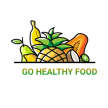The Best Time to Eat Peanuts (Hint: It's Not When You're Thirsty!)
The Best Time to Eat Peanuts
Peanuts are a delicious and nutritious snack, but many people don't know when the best time to eat them is. While peanuts may seem like a great accompaniment to a refreshing glass of water or other beverage, this isn't actually the best time to eat them. In this blog post, we'll discuss the best time to eat peanuts and why it's important to get the timing right. So, if you're wondering when to enjoy this tasty treat, keep reading!
The Science of Peanut Digestion
When it comes to peanuts, many people assume that the best time to eat them is when you’re feeling thirsty. While it may be tempting to grab a handful of salty, crunchy peanuts to combat dehydration, the reality is that there are far better times to snack on these delicious legumes.
A great time to enjoy peanuts is after a meal. This is because peanuts contain high levels of dietary fiber, which can help aid digestion and keep your digestive system running smoothly. The fiber in peanuts can also help fill you up faster and reduce your appetite throughout the day. Additionally, studies have shown that consuming peanuts as part of a balanced diet can help lower blood pressure, reduce cholesterol levels, and even reduce the risk of developing certain diseases.
Peanuts can also be a great snack between meals, as they are high in protein and healthy fats. Eating peanuts between meals can help give you a quick energy boost without adding a lot of extra calories. Peanuts are also an excellent source of vitamins and minerals, such as B vitamins, zinc, magnesium, and iron.
No matter when you decide to eat peanuts, it’s important to remember to practice portion control. Since peanuts are high in calories, eating too many can quickly add up and lead to weight gain. Enjoying a moderate serving size of peanuts—a small handful or a quarter-cup—is the perfect way to enjoy their health benefits without overdoing it.
The Right Time to Eat Peanuts
When it comes to peanuts, the best time to eat them is not necessarily when you’re thirsty. Peanuts contain a lot of fat, so it’s best to eat them in moderation and spread them throughout the day. Eating too many peanuts can cause digestive issues, such as indigestion or heartburn.
One way to make sure you’re eating peanuts at the right time is to incorporate them into your meals. Try adding some chopped peanuts to your salad for an extra crunch, or blend them up into a peanut butter smoothie. You can also use them as a snack throughout the day. Try mixing them with raisins and almonds for a satisfying snack that will keep you full until your next meal.
In addition to eating peanuts at the right time, it’s also important to know how to store them properly. Peanuts are best kept in an airtight container in a cool, dry place. This will help to prevent spoilage and maintain their flavor and freshness.
By following these tips, you can enjoy peanuts without overdoing them. Eating peanuts at the right time and storing them properly can help you get all the benefits without any digestive problems. So make sure you have the right time and place for eating your peanuts!
Other Ways to Optimize Peanut Digestion
When it comes to eating peanuts, there is no one-size-fits-all answer to the question of when the best time to eat them is. That being said, there are a few tips that you can follow to ensure that your body digests the peanuts properly and that you get the maximum benefit from them. Here are a few tips for optimizing peanut digestion:
1. Eat your peanuts at room temperature. Cold temperatures slow down digestion, so peanuts should be eaten at room temperature or slightly warmed in order to make them easier to digest.
2. Avoid eating too many peanuts in one sitting. Eating more than a handful of peanuts at once can lead to indigestion, bloating, and stomach discomfort.
3. Eat your peanuts with other foods. Eating peanuts with other food helps break down the nuts and makes them easier to digest.
4. Chew your peanuts thoroughly. Chewing helps break down the nuts and makes them easier to digest. It also helps to release more of their nutritional benefits.
5. Drink plenty of water when eating peanuts. Drinking water helps to flush out toxins from the body and keeps your digestive system functioning properly.
By following these tips, you can help optimize your body’s digestion of peanuts and get the most out of the nutritional benefits they offer. Remember, eating peanuts is a great way to get in some extra nutrients, but make sure you're doing it in a way that's best for your body!
About the Creator
Healthy Food
Healthy foods are those that provide you with the nutrients you need to sustain your body's well-being and retain energy. Water, carbohydrates, fat, protein, vitamins, and minerals are the key nutrients that make up a healthy, balanced diet







Comments
There are no comments for this story
Be the first to respond and start the conversation.